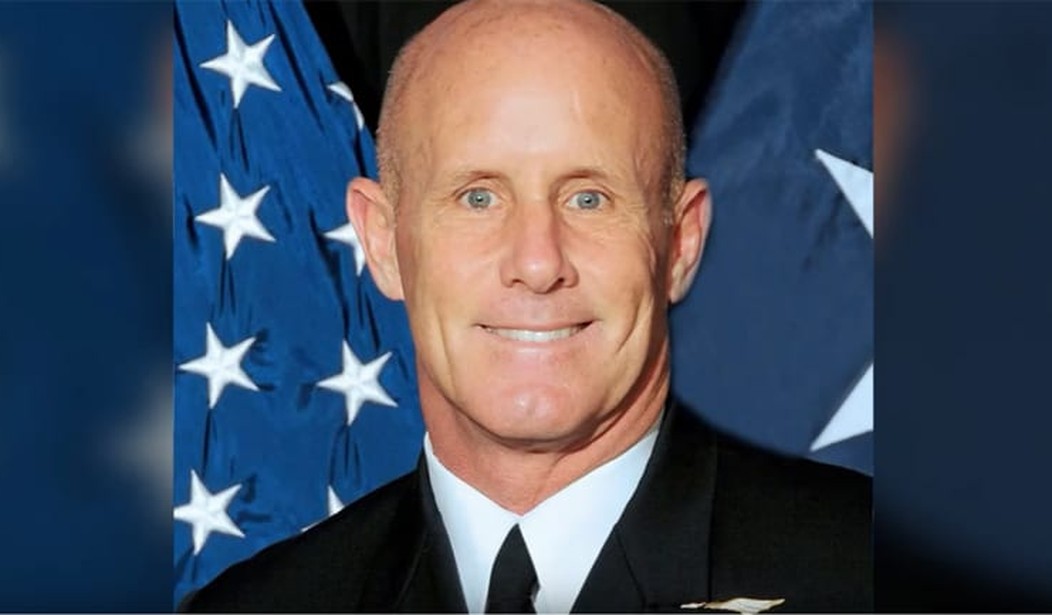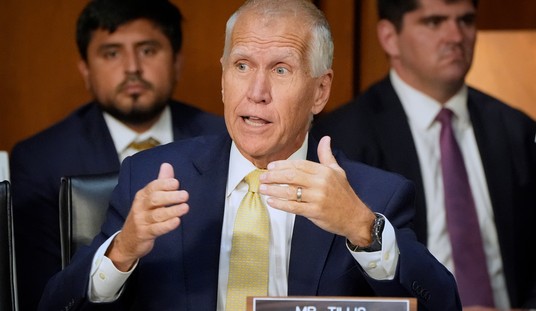President Trump has offered the job of national security adviser to Vice Admiral Robert Harward, Reuters reported Wednesday. It was not immediately clear if Harward had accepted the offer to fill the post left vacant after retired Lt. Gen. Michael Flynn resigned late Monday night.
Foreign Policy reported that Harward told the president that “he needed a couple of days to think it over”:
If, as expected, Harward accepts the job today, he is likely to bring in his own team, from deputy on down, with a focus on national security types with some experience under their belts.
According to Foreign Policy, there would be a “housecleaning” of Trump’s current National Security Council staff under Harward:
I think he would look especially to people he knows from his time working for the George W. Bush NSC from 2003 to 2005. No more Fox News talking heads. Instead, I think he would try to take a Scowcroftian approach to trying to run the interagency policy formulation process — deliberate, rigorous, careful. Just how that will fit with the style of the Twitterer-in-Chief, I don’t know.
Harward served as the deputy commander of U.S. Central Command under Gen. James (Mad Dog) Mattis, now the secretary of defense, ABC News reported:
Harward was appointed in 2011 as the deputy commander of U.S. Central Command, serving until his retirement from the military in 2013.
Before that assignment, he was the deputy commander of U.S. Joint Forces Command and the commander of Combined Joint Interagency Task Force 435 in Afghanistan. After Sept. 11, 2001, he led troops in Afghanistan and Iraq for six years.
Harward, 60, is now the chief executive officer for Lockheed Martin United Arab Emirates.
[…]
Harward was awarded the Distinguished Graduate Leadership Award in 2013 by the U.S. Naval War College for his prominence in the field of national security. In 2012 he received the Ellis Island Medal of Honor for individuals “whose accomplishments in their field and inspired service to our nation are cause for celebration,” according to the National Ethnic Coalition of Organizations, which sponsors the award.
Harward’s military career has not been without controversy.
On August 6, 2011, an American Chinook helicopter — named “Extortion 17” — was shot down in Afghanistan, killing all 30 people onboard, including 17 Navy SEALs. The SEALs had been tasked with capturing an al Qaeda leader alive:
As the Chinook approached its destination, the enemy could be seen running into a building with a tower that gave them an advantageous shooting position. The two Apache escort helicopters had all the visibility and firepower to resolve the battle before Extortion 17 delivered the SEAL team. But the Apaches were denied permission to attack.
Under the Obama Administration’s new rules of engagement, no strike could be made on that building without assurance that no civilians were inside. The enemy knows these rules, which is why they run into buildings where civilians may be located.
Protected by Obama’s rules, the enemy was able to set up shop on the tower of the building and shoot down Extortion 17 using three rocket-propelled grenades. Harward defended the Obama administration’s betrayal during a briefing with the families of the fallen SEALs:
One question asked at the briefing was why, even in the minutes following the shoot-down of Extortion 17, America’s massive firepower was withheld. Three-star Admiral Robert Harward explained to the parents that a drone strike wasn’t used because, “we need to win their hearts and minds.”
The Extortion 17 crash remains the greatest loss of U.S. military SEALs in a single incident.









Join the conversation as a VIP Member